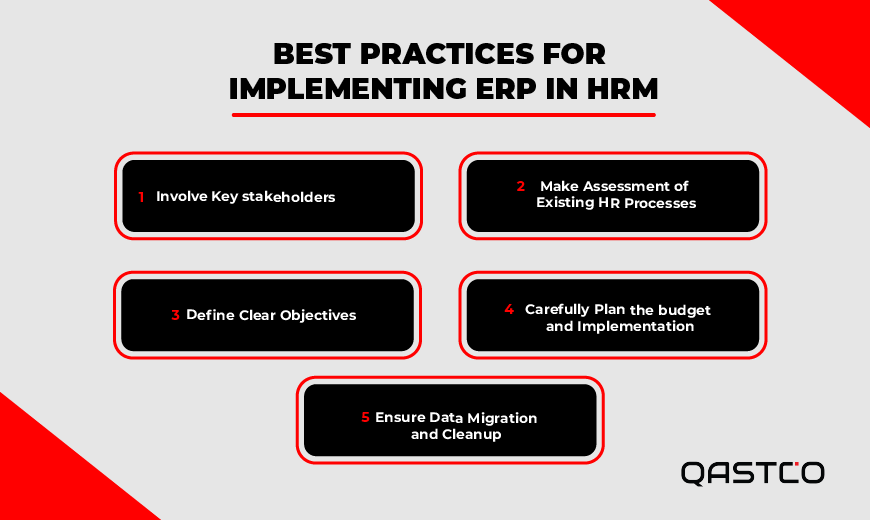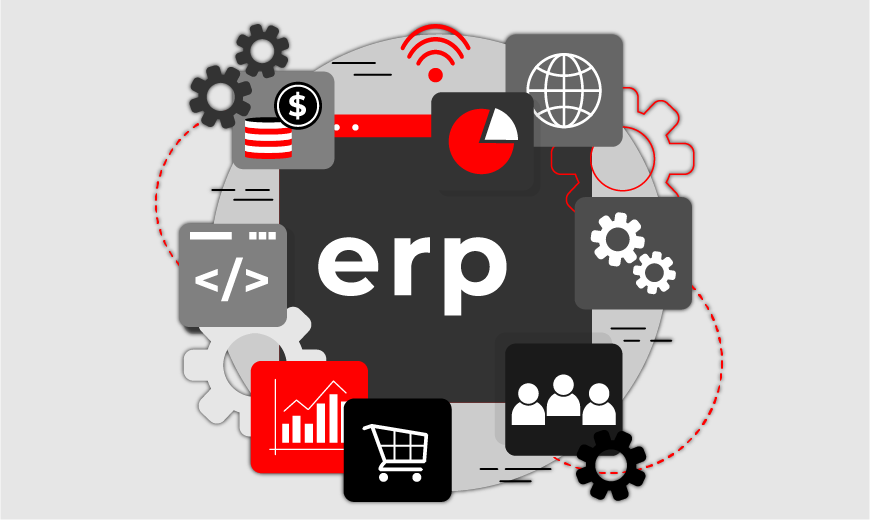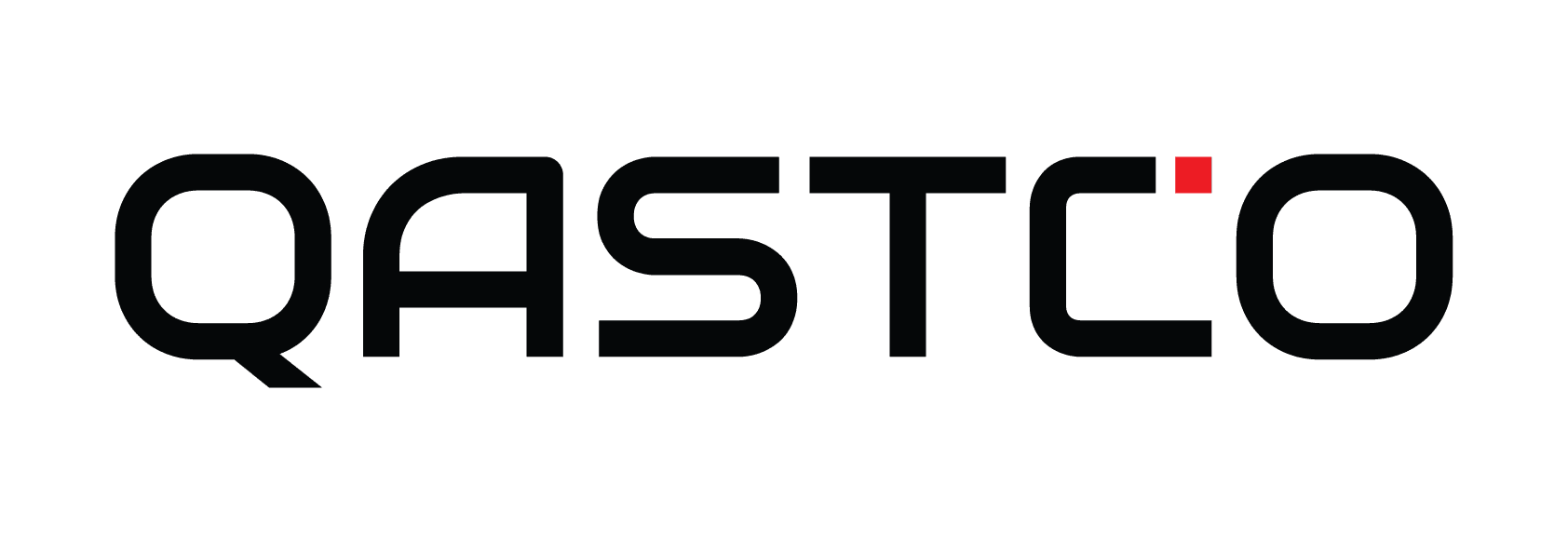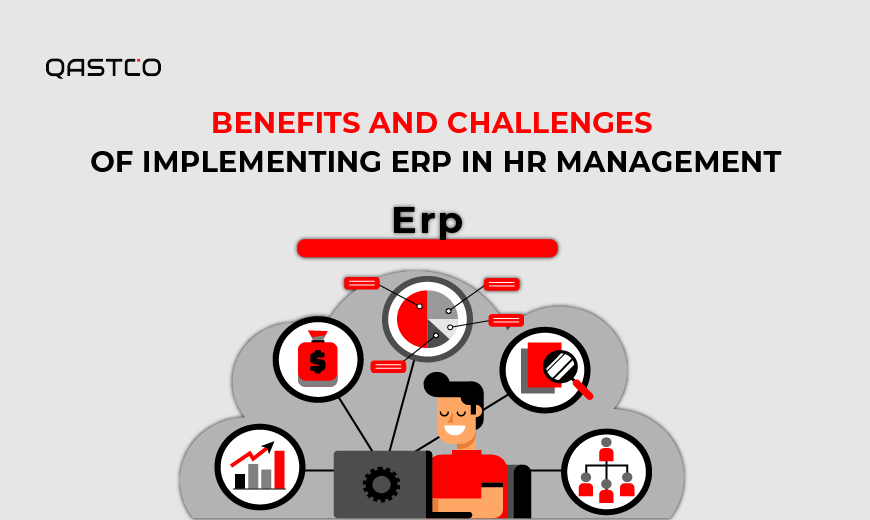Organisations are increasingly turning to Enterprise Resource Planning (ERP) systems to optimise their operations, and one crucial area of focus is Human Resources (HR) management. The integration of ERP technology in HR processes promises a myriad of benefits, ranging from enhanced efficiency to improved data accuracy. However, as with any transformative initiative, the implementation of ERP in HR management is not without its challenges. In this blog, we will delve into the dual aspects of this integration, exploring the significant advantages it brings to HR functions while also acknowledging and addressing the potential hurdles organisations may encounter along the way.

Benefits of Implementing ERP in HR Management
There are many benefits of implementing ERP in HR management. In fact, it can help the company to get a competitive advantage over another. Here are some of the main benefits that companies get after implementing ERP in HR management.
Better Decision Making
As information is the basis for the decisions, the HR ERPs provide real-time data and information about the HR operations and processes. It can generate analytics and reports as well, which helps the manager and decision-maker to act accordingly.
Decision-makers also have a full and comprehensive view of HR as a whole, they can notice trends, insights, needs, and KPIs. They can decide to halt, resume, or start a specific action or schedule it for later. Or they can decide to shift human resources from one project to another.
These all decisions are possible because of proper human capital management systems like ERPs.
Increased Productivity
HR Management software provides an opportunity to increase produtivity. It is because the HR management dashboard is smooth and user friendly. Employees get rid of visiting offices for their concerned matters, rather it is all updated and communicated through the HR management system.
When employees have more time, they can focus easily and can show better performance. This process automation helps in increased trust and less time wastage. That’s how HR ERPs save time, money, and energy while increasing the focus and productivity of human resources.
Comprehensive Record and Need Analysis
One great benefit of implementing HR ERP is employee data management. It develops a comprehensive record of Knowledge, Skills, and abilities employees bring to the company. In addition to that, businesses can integrate the payroll system resulting in fewer calculation errors and less burden on HR and Finance teams.
Moreover, this comprehensive data and HR management software helps in doing need analysis for the recruitment and development of talent in the organisation. This need analysis helps in preparing and scheduling the development programs as well as proper recruitment and onboarding plans for new employees, without interrupting the ongoing operations.
Increased Communication and Collaboration
Implementing ERP in HR leads to better collaboration among the departments and teams. Because of real-time available data, departments are able to help each other through different human resource strengths.
Also, if any team or different departments are working on a task or project, they can communicate, track, and share progress on the ERP platform. In this way, ERP implementation syncs all the departments as one for the whole mission for which an organisation is working.
Challenges of Implementing ERP in HR Management
There are many challenges in the field when it comes to implementing ERP in HR management. Some common challenges are upgrades and maintenance, costs, Data, etc. Furthermore, Some challenges are subject to the organisation’s needs, scale, and package they are buying to implement for human capital management.

Cost of Implementing HR ERP
Human capital management systems like ERPs are a costly investment. As it depends upon the ERP platform for which the business is choosing. Also, it might need systems and apps for working and communication. Businesses might need to pay subscription fees or upfront money to get ERP implemented in HR management.
The cost challenge might hinder the way of implementation of ERP in the HR management system. However, You can contact us for an affordable HR Management system that may suit your customised needs.
Data Migration
Another major challenge for implementing ERP in the HR system is data. This is because there is always a lot of data with HR of employees; their private data, payroll records, succession planning, communication information and talent pool.
To migrate this data, it needs a lot of time and effort. For this purpose, most organisations have to decide which data to be transferred to ERP and which data should not be transferred.
Upgrades and Maintenance
For ERPs, the upgrades and maintenance are quite costly. it usually gets the businesses surprised. Maintenance and upgrades are usually discussed in plans, but some upgrades are required according to the need of an hour. The cost and time of these upgrades and maintenance do hinder implementation of HR ERP.
Customization and On-Boarding
Well, there is always resistance to change. While implementing ERP for human capital management businesses might find and do find resistance from within the organisation. People don’t want to learn or adopt new ERP systems. They want to be stuck on old paperwork. This challenge is gross as it might end up in differences among employees and management.
Furthermore, another challenge along with resistance is customization in ERP implementation for HR systems. This is because ERPs are not ready for all types of organisations. Businesses need customization according to their need, scale, and magnitude of workforce. These customizations might take a lot of time and cost extra money. That’s why implementation is considered a challenge.
Final Thought
In a nutshell, there are benefits as well as challenges to implementing HR ERP. Businesses should consult or gauge the proper benefits and challenges so that they can first overcome the challenges and then reap the benefits of HR ERP implementation in the organisation.


Leave a Reply
You must be logged in to post a comment.